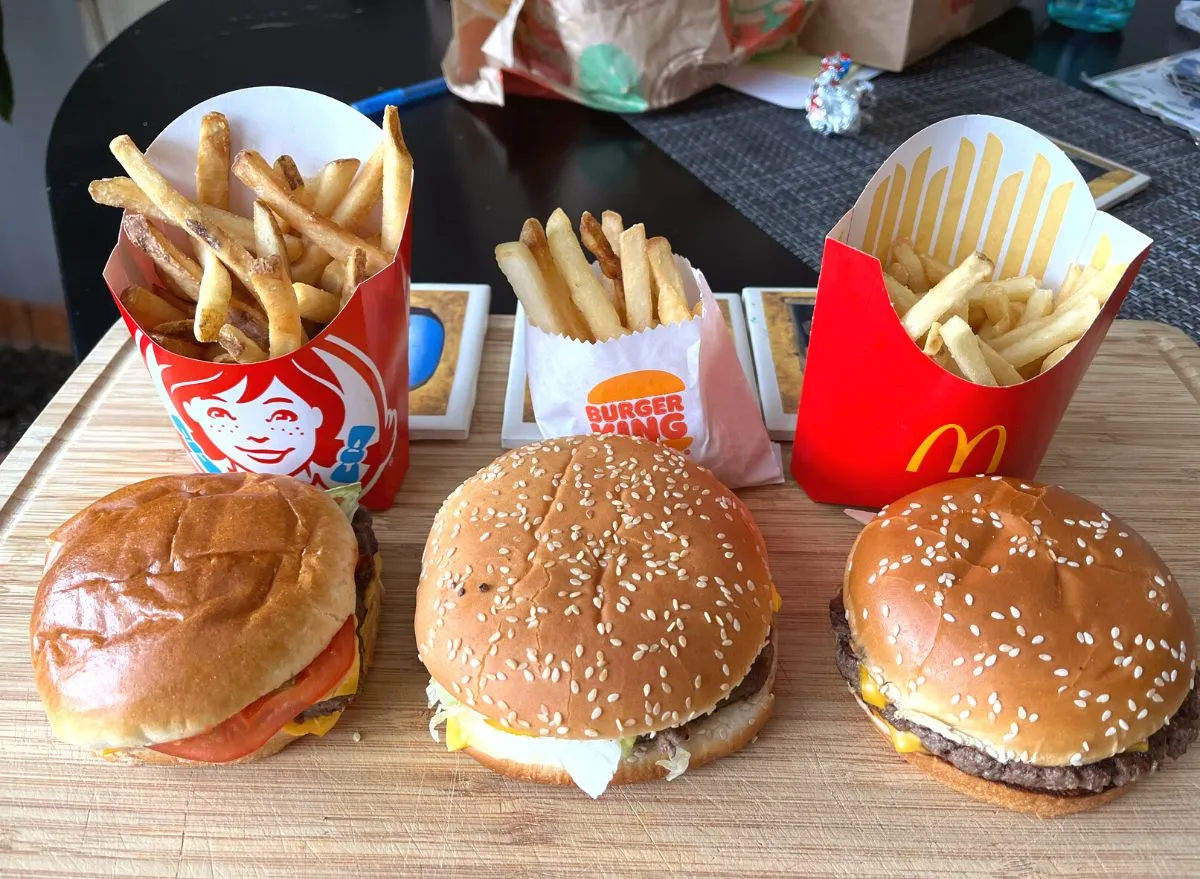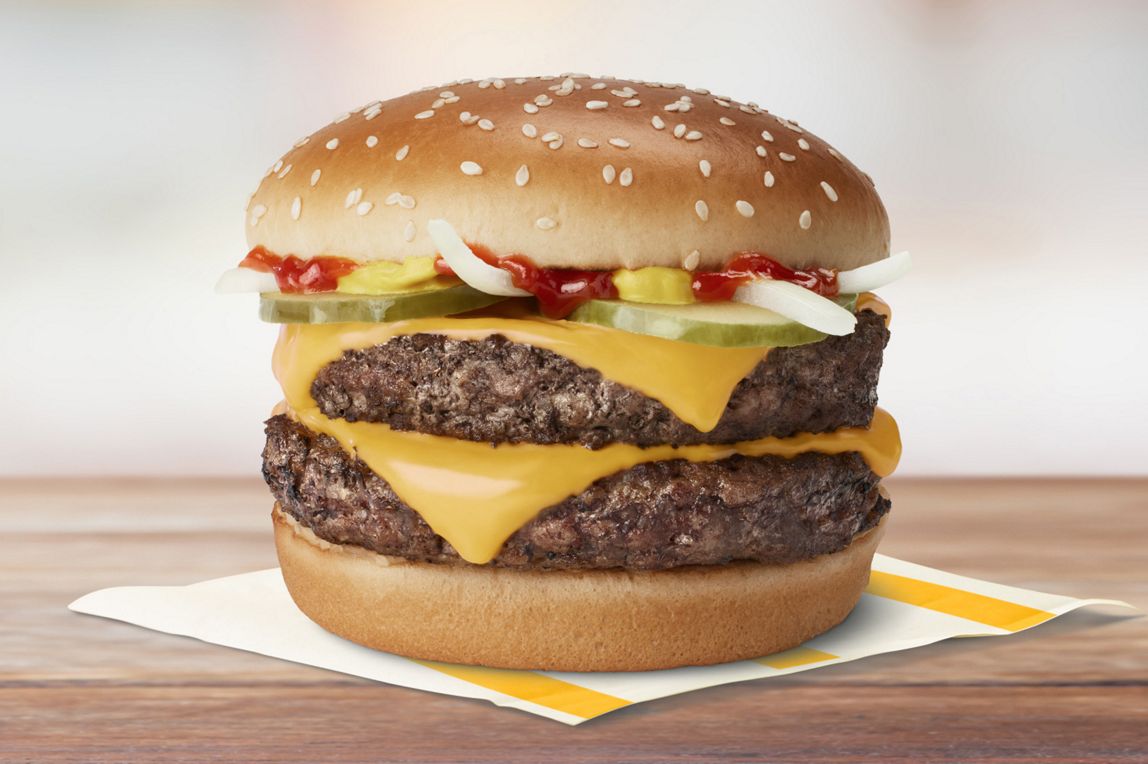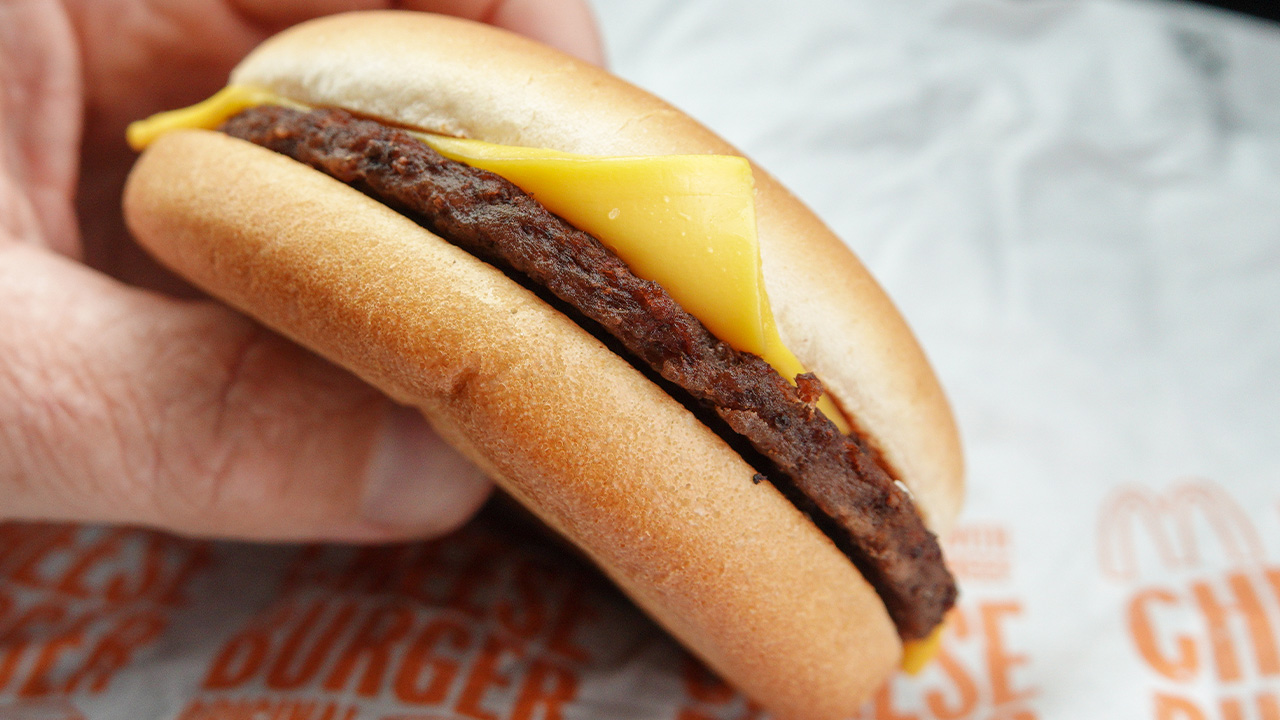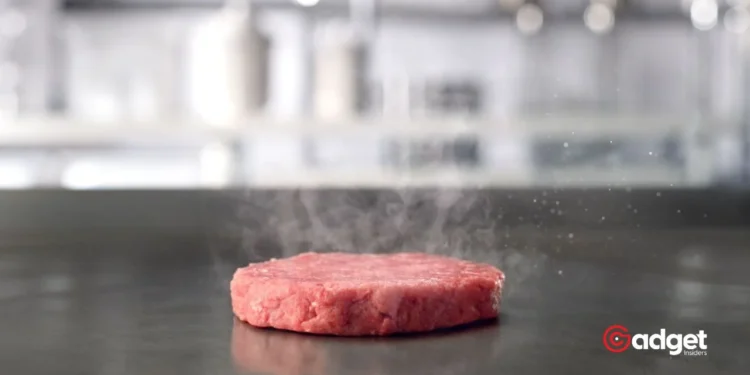McDonald’s, known for its iconic golden arches and quick service, has often faced skepticism regarding the actual ingredients in its famous burgers. Amidst ongoing debates about food transparency, a pertinent question persists: Are McDonald’s burgers genuinely made from 100% beef? This inquiry not only touches on food quality but also reflects the modern consumer’s desire for transparency in their meals.

What’s Really in a McDonald’s Burger?
Contrary to swirling rumors and urban myths, company has been quite forthright about the contents of its burger patties. According to the company’s official website, each burger patty is made of “100% real beef with no fillers, additives, or preservatives.” These patties are crafted from various beef cuts, including chuck, round, and sirloin. The meat is then ground, shaped into patties, and frozen at the supplier’s facilities before making its journey to restaurants nationwide.
Former corporate chef, Mike Haracz, reinforced these claims in a widely viewed TikTok video, stating, “I’ve been in the facilities where they make the meat patties… It’s just beef. It is 100% beef, absolutely nothing else.” His insider perspective seems to close the case on any doubts about the beef’s authenticity.
My son just asked how I make a better burger than McDonald’s. Well son, first you start with quality grass-fed beef. Then you perfect your cooking method by eating this same meal almost every day. pic.twitter.com/gGaNX5lWHt
— 🦝 uooɔɔɐᴚ ˙∀ (@_eat_pray_lift_) May 22, 2023
From Farm to Fast Food: The Supply Chain Unveiled
While it’s clear that the burgers are pure beef, understanding where this beef comes from adds another layer of transparency. McDonald’s prides itself on sourcing beef from a network of responsibly managed farms.
Prominent suppliers like Lopez Foods and Keystone Foods have been instrumental in maintaining the quality that Fast food giant promises its customers. Keystone Foods, in particular, is credited with pioneering the individual quick-freezing technique that helps preserve the natural taste and texture of the burgers.
Mike Haracz elaborated on the process in his video, noting, “The manufacturing partners and the suppliers of McDonald’s process the meat, grind it, patty it, and then freeze it for shipping to restaurants across the United States.” Even the Quarter Pounder undergoes a special process where it is gas-flushed to extend shelf life, then refrigerated during transport.

Addressing the Beef Quality Concerns
Despite these reassurances, questions about McDonald’s beef quality persist, spurred by social media rumors and misinformation. One of the most notorious claims involved the alleged use of “pink slime”—leftover cow trimmings treated with ammonium hydroxide. This issue gained significant attention in 2012 after an investigative report by ABC News, leading to widespread public concern and a massive defamation lawsuit by Beef Products Inc. against the news outlet, which settled for $177 million in 2017.
In response, McDonald’s has clarified that it stopped using lean beef trimmings treated with ammonia in 2011. Since then, the company has committed to using only 100% real beef to ensure the highest standards of food safety and quality are met.

The Verdict on McDonald’s Beef
The evidence suggests that McDonald’s burgers are indeed made from 100% real beef, dispelling myths of fillers or chemical additives. This commitment to quality and transparency reflects McDonald’s response to consumer demands for clearer information about what they are eating. While skepticism may persist due to past controversies, current practices at McDonald’s showcase a notable effort to provide consumers with honest and straightforward products.










